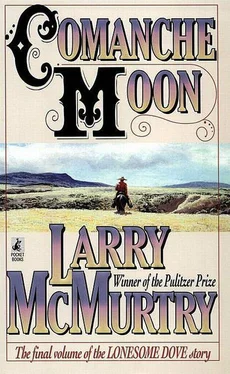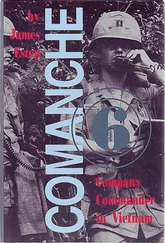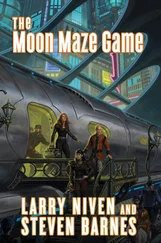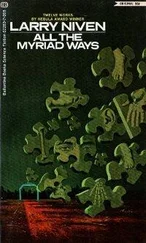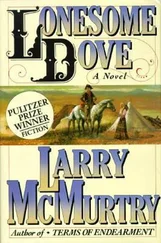The two of them fell silent, looking across to Mexico. Though they quarrelled frequently, they were often tugged by the same impulses, and so it was at that moment by the slow river. The longer they looked across it, the more strongly they felt the urge to attempt their mission alone--without cattle and without the other men.
"We could just do it, Woodrow--the two of us," Augustus said. "We'd have a better chance than if we take the cattle or the troop." Call agreed.
"I'm game if you are," he said. "I think it's about time we made something of ourselves, anyway." "I'd just like to travel with less company, myself," Gus said. "I don't know about making something of ourselves." "Buffalo Hump's held the plains ever since we've been rangers," Call pointed out.
"We've never whipped him. And Ahumado's held the border--we've never whipped him either.
We can't protect the plains or the border either --t's poor work in my book." "Woodrow, you're the worst I've ever known for criticizing yourself," Gus said. "We've never rangered with more than a dozen men at a time.
Nobody could whip Buffalo Hump or Ahumado with a dozen men." Call knew that was true, but it didn't change his feeling. The Texas Rangers were supposed to protect settlers on the frontier, but they hadn't. The recent massacres were evidence enough that they weren't succeeding on their job.
"You ought to give up and open a store, if you feel that low about it," Augustus suggested.
"There's a need for a store, now that the Forsythes are dead. You could marry Mag while you're at it and be comfortable." "I don't want to run a store or marry either," Call said. "I'd just like to feel that I'm worth the money I'm paid." "No, what you want is to take a big scalp," Gus said. "Buffalo Hump's or Ahumado's. That's what you want. Me, I'd take the scalp too, but I don't figure it would change much." "If you kill the jefe it might change something," Call argued.
"No, because somebody else just as mean will soon come along," Gus said.
"Well, we rarely agree," Call said.
"No, but let's go to Mexico anyway," Augustus said. "I'm restless. Let's just saddle up and go tonight. There's a fine moon.
Without the boys to slow us down we could make forty miles by morning." Call felt tempted. He and Augustus at least knew one another's competencies. They would probably fare better alone.
"What's your hurry?" he asked Gus.
"Why tonight?" "If I stay around I expect that Frenchwoman might fall in love with me," Gus said. "Her husband might fight me--it'd be a pity to get blood on that nice tablecloth." "Do you suppose the boys can find their way back to Austin, if we leave?" Call asked.
"Ikey Ripple claims to have never been lost," Augustus reminded him. "I expect it's a boast, but I think we should put him to the test. If the other boys don't want to try it with Ikey, they can stay and help build the saloon. The town would grow quicker if they had a saloon that didn't expose you to the weather--if the saloon had a roof and there was a whore or two and a livery stable, Lonesome Dove might be a place somebody might want to live." "The boys will be right surprised, when they wake up and find us gone," Call said.
"A little startlement would be better than being caught by Ahumado," Gus pointed out. "From what I've heard, he ain't gentle." The white moon soared over Mexico. The longer the two men looked, the stronger beckoning they felt from the unknown land.
"If we had cattle I'd try it the way we were supposed to," Call said. "But the fact is we don't." When they got back to the saloon the two candles had been blown out and the Wanzes had retired to their tent.
"I doubt that tent really belonged to Napoleon," Call said. "He was the emperor. Why would he give it up?" "He might have just liked Th@er@ese, if he'd met her," Augustus said. "I like her myself, even if she did pull hairs out of my nose." Deets was the only man awake when the two of them were saddling their horses and selecting a few provisions. At first he supposed the two captains were just going off on a scout; when Call came over and informed him that they were going to try and rescue Captain Scull themselves, Deets's eyes grew wide. He knew it was not his place to question the action of his two captains, but he could not entirely suppress his apprehension.
"We way down here in the brush," he said.
It wasn't that Deets felt exactly lost --x was just that he didn't feel exactly safe.
The big Indian with the hump might come--or, if not him, someone just as bad.
Call felt a little guilty as he gathered up his gear. He was usually the one impatient to leave, but this time it was Augustus who was in a sweat to get started. Call felt he ought to wake up one or two of the men and let them know what was happening, but Augustus argued against it.
"These men have been drinking ever since we got here," he pointed out. "They're drunk and they're asleep--let's just go. They ain't new calves, they're grown men. I doubt we'll be gone more than a few days. If they don't want to head back to Austin, they can stay here and wait for us." Several loud snores could be heard, as they talked.
Call felt that they ought to leave instructions, but again Gus protested.
"You don't always have to be telling people every single thing to do, Woodrow," he complained. "They need to work up some independence anyway. If we wake 'em up they might quarrel and start punching one another." "All right," Call said. It didn't feel quite right, but there was logic in what Gus said.
Pea Eye woke up, as the two captains talked. He saw them mount and ride out of camp; in a minute or two he heard their horses take the river. But it was not an unusual thing. Captain Call particularly often rode off at night, to scout a little. Pea Eye supposed it was no more than that, and went back to sleep.
When Ahumado saw the small hole in his leg, with the little ring of rot around it, he knew that Parrot had been at work. Parrot had sent the small brown spider who hides to bite him; when he first saw the hole, which was in the lower part of his leg, he was surprised. He had always been respectful of Parrot, as he had of Jaguar.
It was hard to know why Parrot would have the Spider Who Hides bite him--but the evidence was there.
When Ahumado bent over he could smell the rot, and he knew it would get worse. Soon he might have no leg; he might merely have a bone where the leg had been. The flesh of his leg would rot and turn black. Parrot liked to joke --what had happened might only be Parrot's joke. Parrot was older than humans, and had no respect for them. He was capable of complicated jokes, too. The whites had always called Ahumado the Black Vaquero, despite the fact that he had no interest in cows.
He only bothered taking them to annoy the Texans, who prized cows highly. He didn't like horses, either, except to eat, yet the whites considered him a great horse thief, though he only stole horses to trade them for slaves. Still, all the whites called him the Black Vaquero. Parrot knew such things--s now Parrot had sent Spider Who Hides to make his leg black. It was one of Parrot's jokes, probably. The Black Vaquero would at least have a black leg.
Ahumado did not reveal his injury to anyone.
He sat on his blanket, as he always did, watching the great vultures soar across the face of the Yellow Cliffs. There were fewer vultures now, because Ahumado had stopped hanging men in the cages, men the vultures could eat. Only a few of the vultures, or the eagles, still flew along the cliff, waiting to see if Ahumado would cage a man for them to eat.
Ahumado sat as he had always sat, listening, saying little. The wound in his leg was very small yet; no one had noticed it, or smelled the rot that would soon spread. Once he had thought the matter over for a day or two, Ahumado realized that it was more than just one of Parrot's jokes. Parrot had sent Spider to call him home; Parrot and Jaguar wanted him to leave the Yellow Cliffso, to stop harrying the whites with their thin cattle; Parrot and Jaguar wanted him to return to his home, to the jungle, where great serpents rested in the vine-covered temples. There was a broad tree near one of the temples, a tree with a great hole in it. Lightning had hit the tree and burned it away inside, so that there was a space in the tree large enough for a person to live in. When Ahumado was young an old woman had lived in the tree: her name was Huatl and she was a great curandera, so great that she could even cure the bite of the Spider Who Hides. In his youth Ahumado had often seen old Huatl; she lived in the split tree, near his home. She had told him that he would live long but that in his old age it would be his duty to return to the place of the split tree. When it was time for him to finish with his life as a human being, he was to lie near the tree with the hole in it; then he would sink into the earth and become a root. Lightning would come again and burn the great tree where Huatl lived. That tree would burn up but another tree would grow from the root that had once been the man Ahumado.
Читать дальше
